In Michigan, Black babies are three times more likely to die within the first year of life than white babies and Black women are nearly two times more likely to die from pregnancy-related causes than white women, according to 2019 data from the Michigan Department of Health and Human Services. Additionally, the preterm birth rate of babies among Black women is 59% higher than the rate among all other women.
These data points are not new for the state of Michigan. For over a decade, health officials have struggled to reduce these numbers, and while there has been some improvement the disparities continue, especially among Black birthing people.
That was the primary impetus for the W.K. Kellogg Foundation to support an initiative in Grand Rapids known as the Day One Doula Collective.
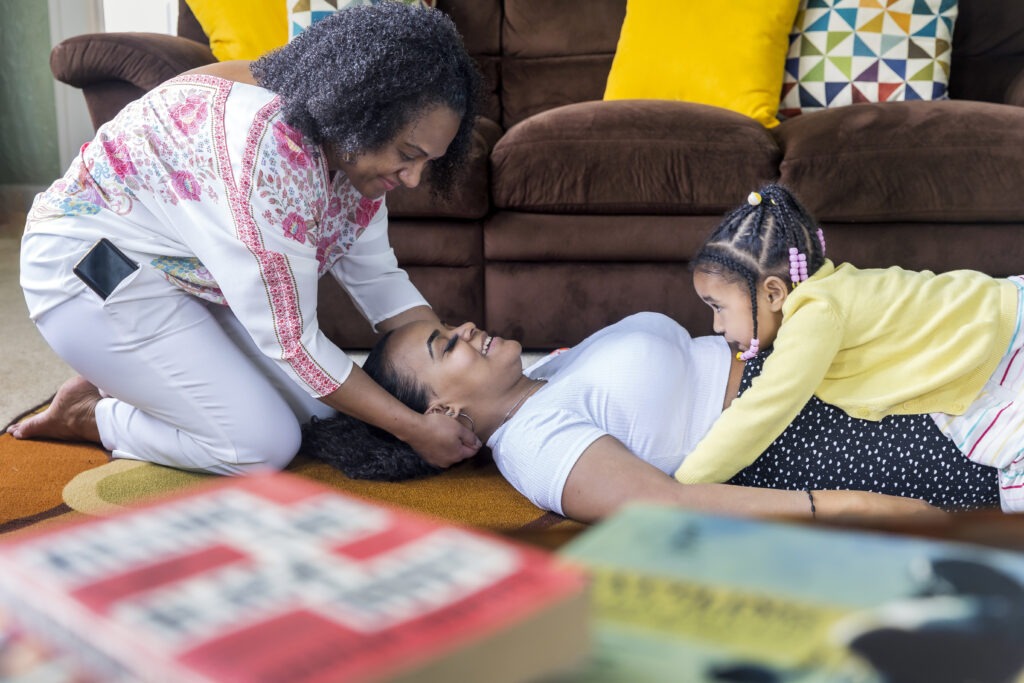
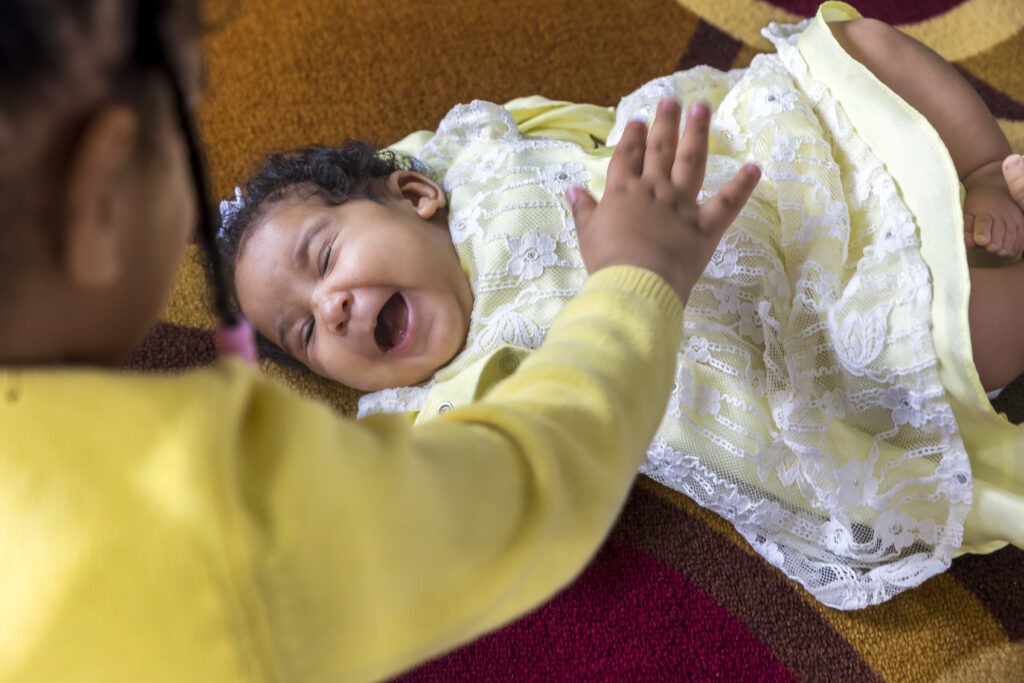
The Day One Doula Collective recruits, trains and supports people of color as community-based doulas. By providing holistic, culturally affirming doula support to birthing people of color, the collective is hoping to address the inequalities in parental and infant health outcomes in Kent County.
Doulas can provide emotional, educational and physical support to birthing parents.
“To begin to close the disparities of Black maternal morbidity and mortality and outcomes for their babies, we first need to build a birth support network workforce,” Dr. Marijata Daniel-Echols (WKKF Program Officer) explains. She says people need to be cared for by providers who are not only providing high quality care but are also culturally competent.
“It means the lactation consultants, the midwives, the doulas look like the people they are serving and supporting,” she said.
This work, she says, is one of the most essential components to ensure children can thrive in our communities.
“Before we can even get to the development of children and families, we need healthy pregnancies, healthy pregnant people, healthy babies and only then can we focus on how to support them as these children grow,” Dr. Daniel-Echols said.
Building Equity in Neighborhoods of Focus
Neighborhoods of Focus are 17 census tracts in the west and south side of Grand Rapids. Residents of these areas experience the most disparate outcomes in the following areas: income, access to education, home ownership and wealth accumulation. Dr. Daniel-Echols says these communities are areas where a high concentration of young children of color live.
Day One Doula Collective is housed at Baxter Community Center in one of Grand Rapids’ neighborhoods of focus. For several decades Baxter has been embedded in the community by providing services, resources and support in empowering ways.
Kiara Baskin is the executive director at Day One Doula Collective. She has more than a decade of experience working in maternal child health with a specific focus on caring for Black women.
It was always Baskin’s dream to help people like herself have supportive birthing experiences.
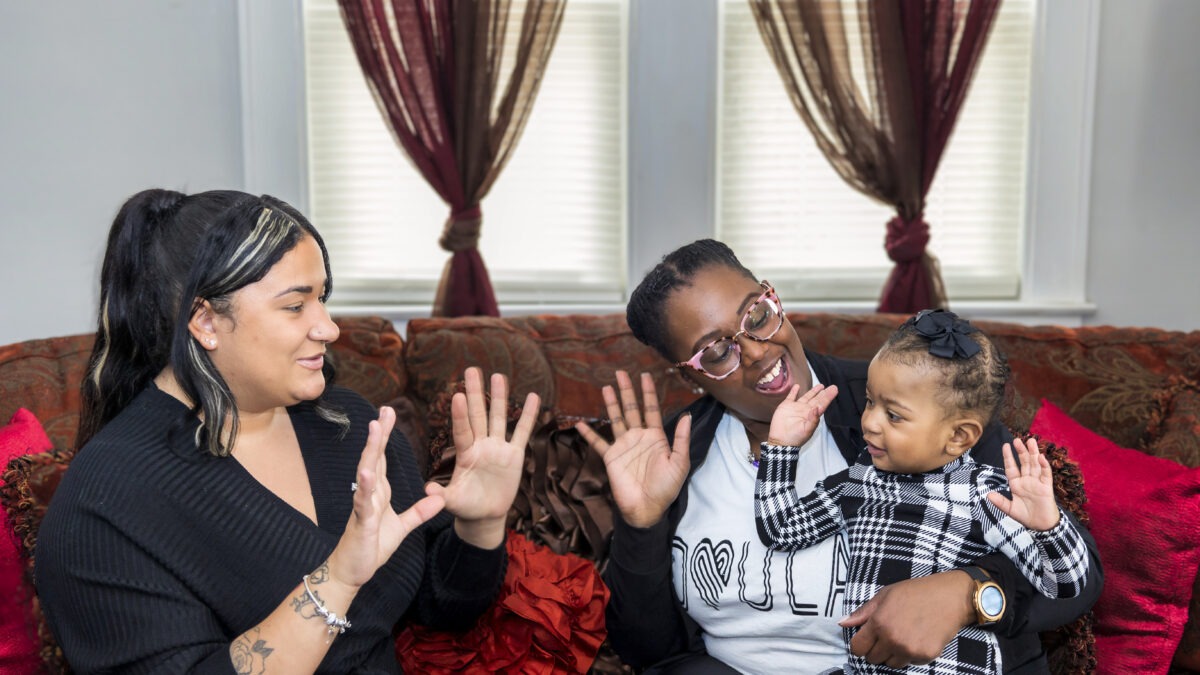
“When I had my first birthing experience it was extremely traumatic but also really educational,” she said. “[At the time] I didn’t know about all the disparities that existed for birthing Black people in particular as it related to birthing outcomes and the choices that we have.”
That experience propelled her to dive head first into the work of maternal health because she had the space to imagine something radically better and different.
In her second time giving birth, Baskin says she felt much more empowered and educated and she was able to bring in the support she needed to make the choices she wanted.
“When you think about community, specifically in the African diaspora, we’ve always relied on community,” she said. “So I needed to have a community for myself selfishly, but also for the larger community to be able to make sure that other women have the type of support that I had.”
Reclaiming Community Power
Since 2018, Day One Doula Collective has offered a variety of training — from their community-based doula training program to a breastfeeding peer educator course. Baskin says they’ve been able to offer educational resources to more than 50 individuals.
“So for us, it’s really about reclamation, and really just learning what has always been ours,” she said.
Dating back to the 1600s, African enslaved people in the United States who had been trained and practiced as midwives in their home countries continued to do so and train others. According to research gathered from the Smithsonian in a blog post, the terms midwife, granny-midwife and granny were used to describe traditional Black Midwives. “Slave owners used these medical practitioners to ensure the health of their reproducing enslaved women and their newborn infants to expand their labor force,” states the blog entry on the Smithsonian.
Up until the 1940s, these midwives attended more than 75% of births in the south. Despite that, Black midwives often were excluded by white male doctors from accessing opportunities to practice as healthcare providers in hospitals and clinics.
Baskin says teaching other birthing people of color how to be doulas is about relearning what was taken from their communities.
“It’s sharing our rituals, ceremonies, traditions to get back to what we have already done,” she said.
According to data from the Center for Disease Control and Prevention, parents who receive assistance during birth from doulas are four times less likely to have a baby with low birth weight, two times less likely to experience a birth complication and significantly more likely to initiate breastfeeding with their baby.
Christy Bell graduated as a doula from Day One Doula Collective three years ago.
“I always wanted to be a doula because a lot of women don’t have the mindset to advocate for themselves and they’re very quiet,” she said. “So although they know something is wrong, they don’t have that bravery to say, ‘This is my first birth. I want it to be like this and I don’t want anybody else to dictate my birth.’”
Since graduating, Bell has supported over 15 people in their births.
“Now, it’s just refreshing and it’s just like your sister, or a cousin, or a niece, or a close friend – you build bonds with a family, you build relationships with them, long term ones,” she said.
To Bell, a birth supported by a doula who looks like the parent can make the experience more peaceful and less stressful.
“You are literally allowing your body to do what it’s supposed to do. You’re not forcing anything. And it’s just making mom more comfortable, more peaceful and allowing her to get that desired birth that she wants, that she has dreamed of having,” she added.
More than anything, Bell says she’s realized how meaningful this work can be, especially when supporting a young girl during birth.
“I get the opportunity to teach them about their body and gain body awareness — sometimes we are the only support that they have,” she added. “I tell them that just because they are pregnant or have a baby it doesn’t dictate their destiny and they can continue to go to school or do whatever they want.”
In those sacred moments, Bell says her clients open and share their dreams and goals for themselves and their babies.
“It’s just giving them hope and giving them that encouragement that they need,” she said. “It's definitely been a humbling experience for me and I'm grateful to be in that space.”
Christy Bell, Day One Doula Collective Graduate
As of January 2023, Michigan Medicaid has begun covering the costs for doula services. The cost of a doula can range anywhere from $700 to $1,200 dollars per pregnancy. Up until now these kinds of services haven’t been covered by Medicaid. The state of Michigan plans to cover $75 dollars per visit for up to 6 visits before or after birth and $700 dollars for delivery services.
Bell says she’s hoping this expanding accessibility will make it easier for her and her future clients to access her care.

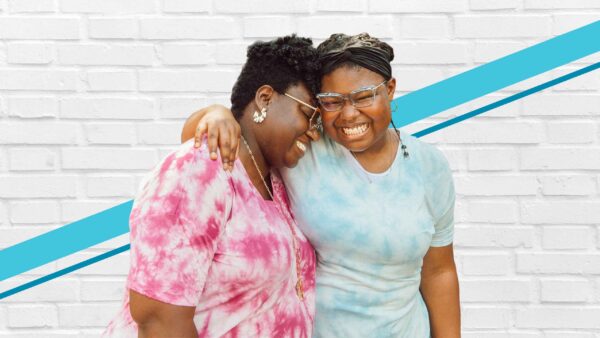
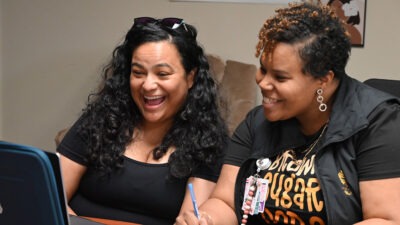
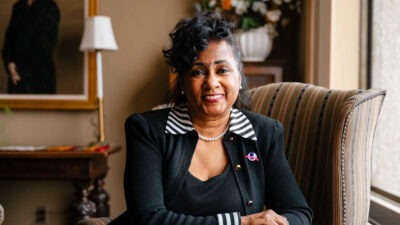
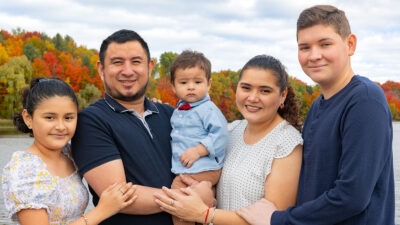
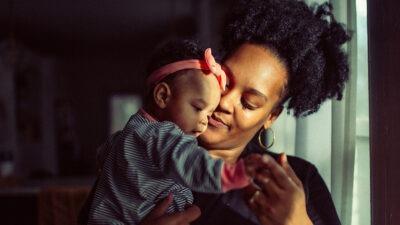

Comments